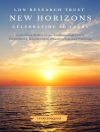The politics and science of health and disease remain contested terrain among scientists, health practitioners, policy makers, industry, communities, and the public. Stakeholders in disputes about illnesses or conditions disagree over their fundamental causes as well as how they should be treated and prevented. This thought-provoking book crosses disciplinary boundaries by engaging with both public health policy and social science, asserting that science, activism, and policy are not separate issues and showing how the contribution of environmental factors in disease is often overlooked.
Innehållsförteckning
List of Illustrations
Acknowledgments
List of Abbreviations
Part One. Setting the Stage: Introduction, Theory, Methods
1. Introduction: Environmental Justice and Contested Illnesses
Rachel Morello-Frosch, Phil Brown, and Stephen Zavestoski
2. Embodied Health Movements
Phil Brown, Rachel Morello-Frosch, Stephen Zavestoski, Sabrina Mc Cormick, Brian Mayer, Rebecca Gasior Altman, Crystal Adams, Elizabeth Hoover, and Ruth Simpson
3. Qualitative Approaches in Environmental Health Research
Phil Brown
4. Getting into the Field: New Approaches to Research Methods
Phil Brown, Rachel Morello-Frosch, and Stephen Zavestoski
5. Environmental Justice and the Precautionary Principle: Air Toxics Exposures and Health Risks among Schoolchildren in Los Angeles
Rachel Morello-Frosch, Manuel Pastor, and James Sadd
Part Two. Working in the Environmental Health Field: Ethnographic Studies
6. A Narrowing Gulf of Difference? Disputes and Discoveries in the Study of Gulf War–Related Illnesses
Phil Brown, Stephen Zavestoski, Alissa Cordner, Sabrina Mc Cormick, Joshua Mandelbaum, Theo Luebke, and Meadow Linder
7. The Health Politics of Asthma: Environmental Justice and Collective Illness Experience
Phil Brown, Brian Mayer, Stephen Zavestoski, Theo Luebke, Joshua Mandelbaum, Sabrina Mc Cormick, and Mercedes Lyson
8. Pollution Comes Home and Gets Personal: Women’s Experience of Household Chemical Exposure
Rebecca Gasior Altman, Rachel Morello-Frosch, Julia Green Brody, Ruthann A. Rudel, Phil Brown, and Mara Averick
9. The Personal Is Scientific, the Scientific Is Political: The Public Paradigm of the Environmental Breast Cancer Movement
Sabrina Mc Cormick, Phil Brown, Stephen Zavestoski, and Alissa Cordner
10. School Custodians and Green Cleaners: Labor-Environmental Coalitions and Toxics Reduction
Laura Senier, Brian Mayer, Phil Brown, and Rachel Morello-Frosch
11. Labor-Environmental Coalition Formation: Framing and the Right to Know
Brian Mayer, Phil Brown, and Rachel Morello-Frosch
12. The Brown Superfund Research Program: A Multistakeholder Partnership Addresses Problems in Contaminated Communities
Laura Senier, Benjamin Hudson, Sarah Fort, Elizabeth Hoover, Rebecca Tillson, and Phil Brown
Part Three. Ethical Considerations
13. Toxic Ignorance and the Right to Know: Biomonitoring Results Communication; A Survey of Scientists and Study Participants
Rachel Morello-Frosch, Julia Green Brody, Phil Brown, Rebecca Gasior Altman, Ruthann A. Rudel, Carla Pérez, and Alison Cohen
14. IRB Challenges in Community-Based Participatory Research on Human Exposure to Environmental Toxics: A Case Study
Phil Brown, Rachel Morello-Frosch, Julia Green Brody, Rebecca Gasior Altman, Ruthann A. Rudel, Laura Senier, Carla Perez, and Ruth Simpson
15. Conclusion
Phil Brown, Rachel Morello-Frosch, and Stephen Zavestoski
Appendix: Contested Illnesses Research Group’s Nuts and Bolts and Lessons Learned
Laura Senier, Rebecca Gasior Altman, Rachel Morello-Frosch, and Phil Brown
References
List of Contributors
Index
For additional appendixes, see www.ucpress.edu/go/contestedillnesses
Om författaren
Phil Brown, founder of the Contested Illnesses Research Group at Brown University, is Professor of Sociology and Environmental Studies. He is the author of No Safe Place: Toxic Waste, Leukemia, and Community Action (UC Press). Rachel Morello-Frosch is Associate Professor in the Department of Environmental Science, Policy, and Management and the School of Public Health at the University of California, Berkeley. Stephen Zavestoski is Associate Professor in the Department of Sociology and the Environmental Studies Program at the University of San Francisco.












